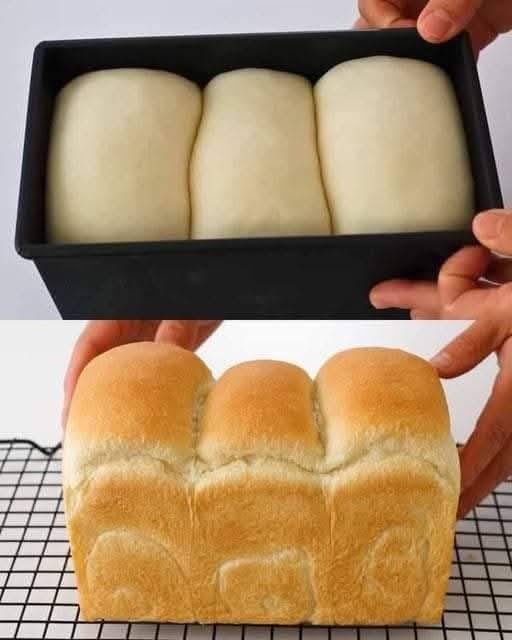Instructions:
- Prepare the Yeast:
- Mix the yeast with warm milk (about 100°F or 37°C). Let it sit for 5-10 minutes until frothy.
- Mix Dry Ingredients:
- In a large mixing bowl, combine the bread flour, sugar, and salt.
- Combine Wet Ingredients:
- In a separate bowl, whisk the egg, then add the heavy cream and the frothy yeast mixture.
- Form the Dough:
- Gradually add the wet ingredients to the dry ingredients, stirring with a spoon or dough hook until it forms a sticky dough.
- Knead the dough either by hand (for 10-15 minutes) or with a mixer (for 5-7 minutes) until it becomes smooth and elastic.
- Incorporate Butter:
- Gradually add in the softened butter while kneading, ensuring it is fully incorporated. Continue kneading until the dough is smooth and no longer sticky.
- First Rise:
- Form the dough into a ball and place it in a greased bowl. Cover with plastic wrap or a towel and let it rise in a warm place for 1-1.5 hours, or until it doubles in size.
- Shape the Dough:
- Once risen, punch down the dough to release air. Divide it into three equal parts. Roll each part into a smooth ball.
- Place the dough balls into a greased loaf pan, side by side.
- Second Rise:
- Cover the loaf pan with a damp cloth or plastic wrap and let it rise again for 30-45 minutes until the dough reaches the top of the pan.
- Bake:
- Preheat your oven to 350°F (175°C).
- Bake the bread for 25-30 minutes, or until the top is golden brown.
- Cool:
- Remove the loaf from the oven and let it cool on a wire rack for 10-15 minutes before slicing.
Here are some variations and tips for making your milk bread even more delightful:
Variations:
- Add Flavors: You can incorporate different flavors by adding vanilla extract or almond extract to the wet ingredients for a subtle sweetness.
- Fruits and Nuts: Mix in raisins, dried cranberries, or chopped nuts like walnuts or pecans for added texture and flavor.
- Cheese: For a savory twist, consider adding shredded cheese (like cheddar or mozzarella) to the dough.
- Herbs: Fresh or dried herbs, such as rosemary or thyme, can be mixed into the dough for a fragrant loaf.
Tips:
- Kneading: Make sure to knead the dough thoroughly. A well-kneaded dough will be smooth and elastic, which is key for that fluffy texture.
- Proofing Time: Allow the dough to rise in a warm, draft-free area. If your kitchen is cool, you can turn on the oven for a few minutes, then turn it off and place the dough inside to rise.
- Baking: For a golden crust, brush the top of the loaf with an egg wash (beaten egg mixed with a little water) before baking.
- Storage: Once baked, let the bread cool completely before storing it in an airtight container to maintain its softness.
To store your milk bread and keep it fresh, follow these tips:
- Cool Completely: Allow the bread to cool completely on a wire rack after baking. This prevents moisture from building up and making the bread soggy.
- Wrap It Up: Once cooled, wrap the bread tightly in plastic wrap or aluminum foil. This helps to keep it from drying out.
- Airtight Container: Alternatively, you can place the wrapped bread in an airtight container to further protect it from air exposure.
- Room Temperature: Store the wrapped bread at room temperature if you plan to consume it within a few days. It should stay fresh for about 2-3 days.
- Freezing: If you want to keep the bread for a longer period, you can freeze it. Wrap the bread tightly in plastic wrap, then in aluminum foil, and place it in a freezer-safe bag. It can be frozen for up to 3 months. When you’re ready to eat it, simply thaw it at room temperature or warm it in the oven.
Enjoy:
This milk bread is perfectly fresh out of the oven, lightly toasted, or paired with your favorite toppings. Its soft, tender crumb makes it a versatile addition to any meal or snack.

